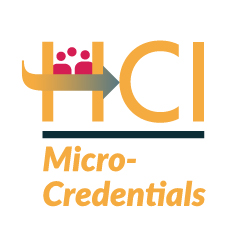Exploring Regional Economies
Micro-credentials are short courses that are usually offered on a flexible basis. They are accredited and assessed by SETU or MTU. Our courses range from 1 to 5 credits. As a guide, a standard undergraduate module is 5 credits. In general, you can expect between 5 to 10 hours of class time for a 1 credit module and 24 to 36 hours for a 5 credit module, spread over several weeks. Micro-credentials can be offered at any level on the National Qualifications Framework (NQF), ours are at level 6 (Higher Certificate Level), level 7 (Ordinary Degree Level) or level 8 (Honours Degree Level). The courses are delivered on a flexible basis, to fit into the demands of a busy working life. Most of our programmes are delivered on a fully online basis with the learning taking place on a synchronous basis (i.e. live online classes) or asynchronous basis (i.e. pre-recorded material that you can view in your own time).

According to Eurostat (2024), Ireland's Southern Region is the most productive region in the EU in 2022. If you are not feeling very rich, you are not alone - this highlights the vagaries of measuring regional economic performance.
Balanced regional development is a key economic policy that has transcended several governments. However, challenges remain and the relative performance of the regions is a continuous part of the political discourse.
On this course the notion of a region will be addressed and how regions are delineated. Some of the economic concepts that can help understand regional development will be considered. The measurement and assessment of regional economic performance will form a key part of this course.
Then to contextualise the course within a real-world example, the development of the investment fund administration sector will be examined.
The investment fund industry is one of the successes of the policy of balanced regional development. It is now a key employer in the South East and South West. Initially, the industry was exclusively concentrated in the IFSC in Dublin however over the past two decades it has expanded into the regions.
The aim of this micro-credential is to develop an understanding of the processes that gave rise to the regionalisation of the sector through the lens of regional economics and to examine the reasons why an organisation might choose to locate in a region .
This micro-credential is aligned to level six on the National Qualification Framework.
This course is subject to approval (see Cost and Applications Section).
This course is at Level 6 on the National Qualifications Framework (NQF) and will attract 1 Credit (European Credit Transfer and Accumulation System - ECTS). Subject to approval (see Cost and Applications Section).
On successful completion of this micro-credential, students should be able to:
- Describe the fundamental issues and concepts of regional economics and how the evolution of a sector, the investment funds sector, can be framed though a lens of the regional economics discipline
The types of questions that will be addressed include:
- How are regions defined?
- What economic concepts can be used to help understand regional development?
- What is the significance of the multiplier effect?
- How is regional performance measured?
- Why would a fund admin/service provider locate in a region?
- What are the barriers to fund admin/service providers locating in the region
- Why are clusters of specialist activities, eg the funds industry and the SE Financial Services Cluster, important in this context?
This course is subject to approval (see Cost and Applications Section)
Candidates will have an award at level 5, or equivalent, in any discipline.
Applicants whose first language is not English must submit evidence
This course will be delivered online over zoom or equivalent.
Content will be delivered live with come pre-recorded content.
It is envisaged that there will be 6 hours of lecture contact.
This course is subject to approval (see Cost and Applications section).
The fees for this course is 50% funded through the Human Capital Initiative
The cost of the course to the student is €140.
To check if you are eligible for the funding please follow this link (external site - Higher Education Authority). If you have any doubts, please contact us.
As the course is subject to approval, it is not possible to accept applications yet.
However, if you are interested please complete 'the register your interest' form or scan the QR Code and we will contact you when applications open

